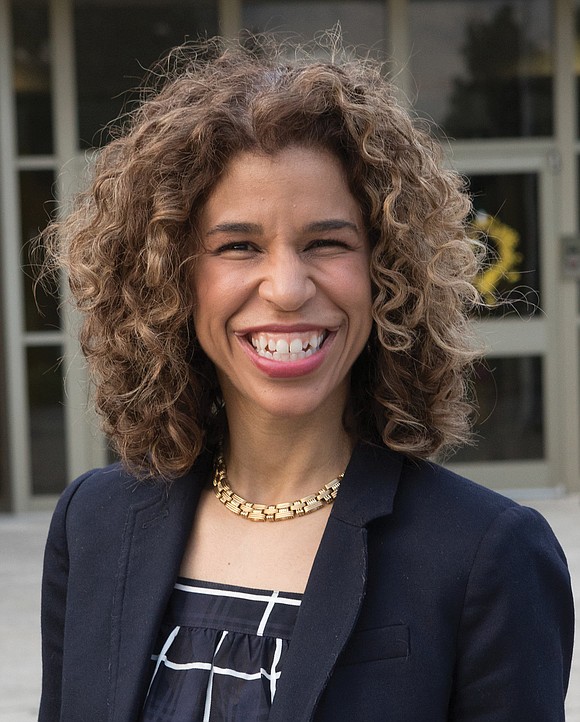Racial justice and democratically governed schools, by Kenya J. Gibson
6/3/2021, 6 p.m.
I am writing in response to a letter the Richmond School Board received this spring from the Virginia Department of Education regarding the body’s ability to effectively govern. It is a letter that I believe should concern us all.
Without question, this has been an unprecedented time to serve on the School Board.
Despite all the talk of needing to rethink public education, no one predicted a day would come when schools would completely transform overnight because of a pandemic. In response, we have fielded countless questions about the closure brought on by COVID- 19, staff requirements, online curriculum, food distribution and access to technology. The board also has debated a possible year-round calendar, how to spend sorely needed stimulus funding and using buildings for emergency child care.
It is true we have had many long meetings this year. It is also true that community engagement has soared, which is evidenced by hours of public comment at the start of each meeting. During each meeting, debate is robust. And after we adjourn, our decisions aren’t always universally popular.
This is what democracy looks like. And although it is messy at times, given its history in the Commonwealth, democratic school governance is not a privilege we should take for granted.
Just two years ago, our school district embarked on a process for rezoning schools. For many months, we engaged in a citywide dialogue on the impact of Massive Resistance, a shameful mark on Virginia’s history, made possible by a landscape of appointed school boards throughout the state. Similar to efforts to restrict access to the polls, appointed governing bodies are a method to undermine democracy and ensure that those with power remain in control.
While Virginia’s schools integrated in the early 1960s, school boards remained appointed until the General Assembly moved to allow elected boards decades later. This was signed into law by then-Gov. L. Douglas Wilder in 1992. The following year, the Richmond Crusade for Voters successfully fought to change the City Charter and establish an elected School Board in Richmond.
The current elected model has remained unpopular among some, including influential members of Richmond’s most affluent business community.
In 2007, 26 business leaders organized to overturn the elected School Board model and revert back to the appointed system. Thankfully, their efforts failed.
Unfortunately though, disparaging the work of school boards continues today. In Richmond, differences in how members of the body vote are belittled as squabbles between women to overshadow the political stakes behind the debate. In April, this narrative was formalized when the Richmond School Board received the VDOE’s letter regarding the quality of our governance.
I am proud that, despite all the obstacles, we have a School Board that is committed to putting students above the political agenda of any person. It is the students who will bear the consequence of whether we acquiesce, go along to get along, or whether we stand up and fight for the schools that only true democratic governance can provide.
The majority on the School Board — those who voted for my Schools Build Schools resolution — are RPS parents. Those closest to the problem are closest to the solution. That is what democratic governance is about.
From my perspective, the state education department’s letter is posturing without truly exploring, and it is outrageous. We are a majority Black women body, governing a majority Black city school system, dealing with decades of racist defunding of Richmond Public Schools from the state. The notion that Black people cannot govern goes back in Virginia to the ugliest of racist ideology used to discredit the first Black public officials following the end of the Civil War.
Richmonders demand and expect the School Board’s democratic authority to be respected, and we will fight to defend our democratic authority because we know it is the only way to do right by students.
The push to limit democratic governance is a true threat. Evidence of this can be seen around the country. In Gary, Ind., the state recently took control of an elected school board and gave authority to an appointed emergency manager.
According to Domingo Morel, author of “Takeover: Race, Education and American Democracy,” as of 2017, 33 states had takeover laws and 22 states had taken over school districts.
In its statement on ending state takeovers, appointed school boards and mayoral control, the grassroots organization Journey for Justice Alliance writes, “We want elected, representative school boards. While they are not a panacea, we view democracy as a necessary ingredient in moving towards an equitable school system, a practical application of the notion of accountability to the public.”
As we continue to fight the vestiges of Massive Resistance and seek true racial justice, we must protect democratically governed schools. In the words of Pastor Dwight Gardner from Trinity Baptist Church in Gary, Ind., “The right to vote to select your own representation is a right of what we call freedom.”
The writer is the 3rd District representative on the Richmond School Board.







